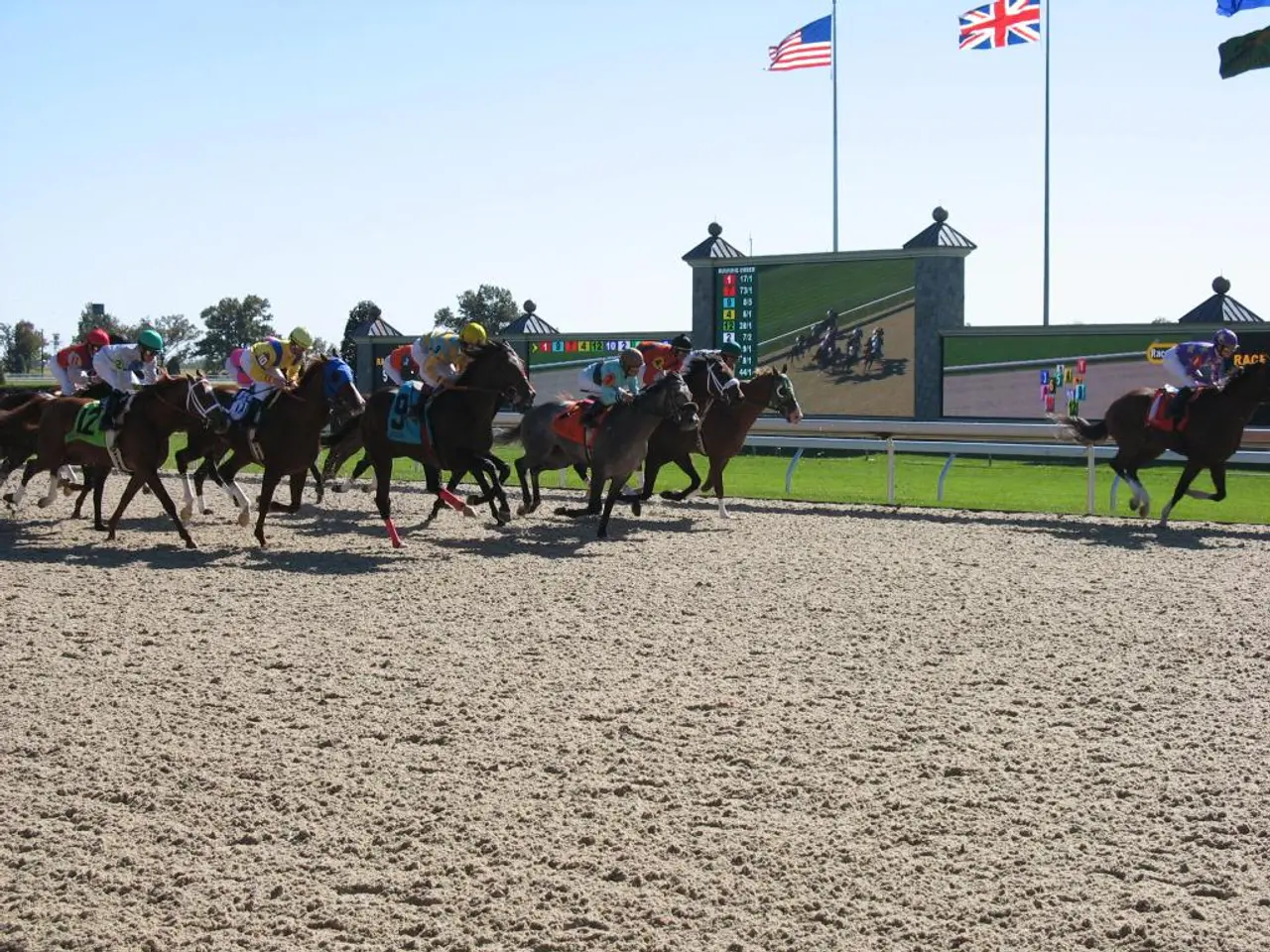A Resurgence in Greyhound Racing Sparks Debate
Gambling and Streaming Reinventions Welsh Greyhound Racing's Existence
There's a stirring controversy brewing in Wales as an animal welfare charity expresses concerns over the potential resurgence of the greyhound racing industry following a seemingly prolonged slump over the past two decades. Greyhound Rescue Wales has pointed its finger at "streaming and betting" as key factors fueling this revival.
The charity's CEO, Tim Doyle, argues that streaming and betting are significant contributors to the industry's comeback, as many tracks in the UK, including Valley Stadium in Rhymney Valley, now host live streaming contracts as their main output. According to Doyle, Valley Stadium, recently licensed by the Greyhound Board of Great Britain (GBGB) in 2023, has already hosted 42 races in November and 168 races in October.
While Greyhound Rescue fears the resurgence could prolong the sport's survival, the GBGB contends that the growth is the result of successful regulation and the implementation of animal welfare measures. The regulator notes the South Wales valleys' track welcomes a dedicated pool of racing enthusiasts who value the welfare safeguards put in place. With this confidence, the GBGB asserts that British greyhound racing remains a prominent product for broadcasters both domestically and internationally, contributing £166m ($208m) to the UK economy each year.
Greyhound Rescue, however, warns against celebrating the upsurge in greyhound races as a catalyst for community growth. Doyle points out that whilst many people might perceive greyhound racing as a night of fun at the tracks, the reality is that most of the business comes from streaming and betting. Matt Zarb-Cousin, a gambling reform campaigner, shares a similar sentiment, describing greyhound racing as outdated and more like random betting events.
It seems that whilst modern betting platforms and streaming technologies remain crucial to the commercial viability of greyhound racing, recent investments in structual reform, ethical standards, and regulatory oversight are at the core of the resurgence in regions like Wales. These reforms aim to strengthen the sport's sustainability and reputation.
The increase in greyhound racing, propelled by streaming and betting, has reignited discussions among animal welfare enthusiasts. Despite the Greyhound Board of Great Britain's assertion that successful regulation and animal welfare measures are driving the growth, Greyhound Rescue Wales and gambling reform campaigner Matt Zarb-Cousin caution against viewing the surge in races as a positive catalyst for community development, emphasizing that most of the business has shifted online.







